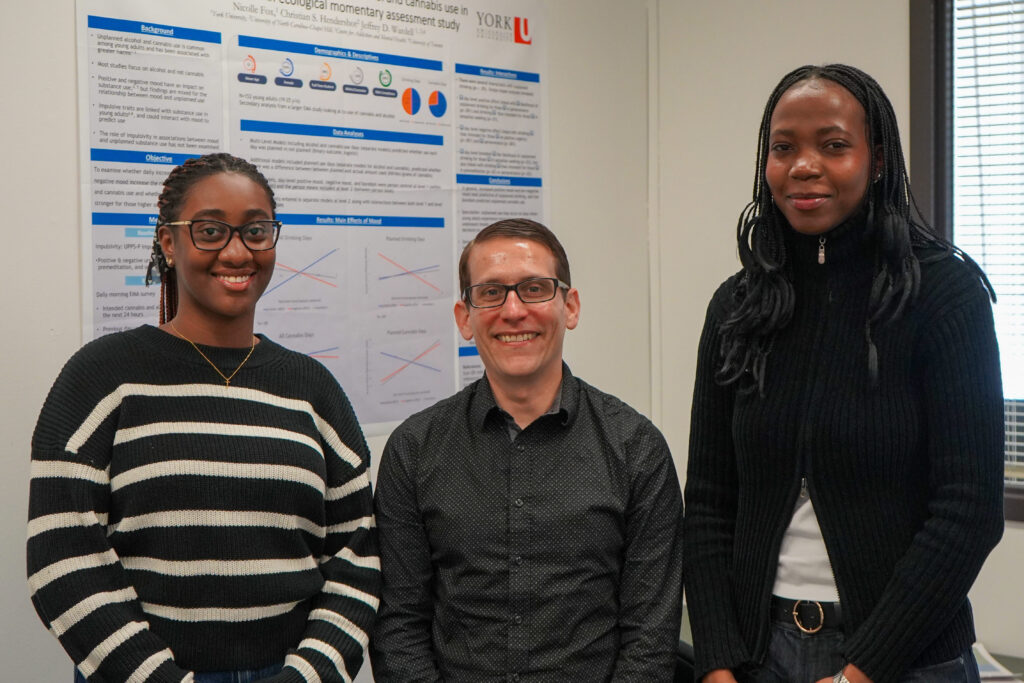STORY BY JULIE CARL
Aneeka Black was determined to get the research experience she needed to reach her goal of becoming a counselling psychologist. Not an easy task, she discovered, until the email about Research Experience and Diversity Initiative (REDI) arrived and changed everything.
REDI helps students from underrepresented groups, including first-generation students, racialized, and LGBTQ2S students, with no research experience match with a research project. Jeffrey Wardell, a professor in the Department of Psychology in the Faculty of Health who serves on the department’s Decolonizing, Equity, Diversity and Inclusion (DEDI) committee, spearheaded REDI a couple of years ago. It has proved popular: the program grew from nine students placed in its pilot year to 30 the following year. He realized that as demand for graduate school increased, students from underrepresented groups were being excluded from that necessary step to “pathways into more advanced careers in psychology,” Wardell said.
“I think the REDI program is so important. I got this experience that I never would have had...everyone should have the opportunity to do what they really want to do.”
— Psychology student Mosope Afolabi-Ajayi
He points out there’s “a bit of a hidden curriculum for students” who want to go on to grad school. They must do extracurricular research and volunteer work to gain experience in relevant areas. That takes a lot of free time and students who must work or take care of family during the school year simply do not have that time. Members of certain groups may be more likely to face barriers to gaining these research experiences such as a lack of mentorship or free time, which puts them at a disadvantage when applying to graduate school. The REDI program seeks to break down some of these barriers and assists students in obtaining some initial experience in a research lab, which is a first step toward building a more competitive graduate application. Wardell said the competition for grad school is fierce. Currently, the acceptance rate for graduate studies in some clinical psychology programs is lower than medical school, he said.
Black applied for the REDI program in the summer of 2023 and was matched with Prof. Jennine Rawana’s REACH lab on the York campus that focuses on emotion regulation among emerging adults and adolescents. She has been working there for the past year. She received a Social Sciences and Humanities Research Council grant to do her own research over the summer on how income affects an adolescent’s wellbeing and presented her findings at the 2024 undergraduate research conference. Black believes her research experience helped her gain her position as a volunteer crisis responder with the Distress Centres of Greater Toronto and gain admission into York’s specialized honours psychology program.

Black believes none of that would have happened without the REDI program. “I would honestly say, if I wasn't in the REDI program, I don't know what would have happened. It wasn’t until I got into the REDI program that I was finally able to match with the lab. And that’s doing all these things for me.”
Another student, Mosope Afolabi-Ajayi, also benefitted from the REDI program. She was entering her fourth year in psychology and still had not been able to get research experience. With REDI’s help, she was matched with the Boredom Lab led by John Eastwood, an associate professor of clinical psychology. That experience motivated her to enrol in Humber Polytechnic’s research analyst post-graduate certificate program.
“I think the REDI program is so important. I got this experience that I never would have had,” Afolabi-Ajayi said. “Everyone should have the opportunity to do what they really want to do.”
Psychology professor Esther Greenglass, a strong supporter of REDI, has seen up close the tremendous benefits the program provides for both students and faculty. “I do like to have a diverse lab where we can get input and contributions from different students from different walks of life and so on. I took on three students last year, and Jeffrey and his team were very good at matching the students' interests with my interests. Of those three students one is still with me, and he's preparing to go to graduate school.”
